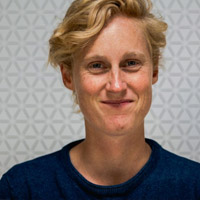Short Course
Sustainable Development Goals for Impact (2 days)
Develop a sustainable mindset by making critical conversations tangible
Are you ready to make a real impact on this world, but don’t know where to start? Let us invite you to start right here, with us.
Learn how to become a ‘critical maker’ by exploring early understanding of societal challenges by actively reflecting towards empathy with the problem at hand. The main focus of critical making is to develop a critical perspective on the current institutions, practices and norms of society, reconnecting materiality and morality.
In the light of the Sustainable Development Goals (SDGs), as adopted by the UN in 2015, it becomes more and more important to create a common understanding of our current and future global, and local challenges. This understanding should cut right across cultures, identities and personalities and therefore, talking about these issues alone is often not enough. Tangible conversation starters help to create a shared empathy for what the challenges are and what can be done about them.
In this intensive ‘goodcamp’ we encourage you to make conversational and provocative prototypes from the start. These prototypes serve as conversation starters and research tools. Without the making aspect, we believe one cannot work towards a full understanding of the challenge. And, with the right empathy for the challenge at hand, you will be ready to get the most out of your conversations and solutions.
What you will learn:
- How to formulate specific local challenges that relate to global challenges and the SDGs
- How to look for information that supports and feeds their challenge
- How to translate these data into a provocative, conversation-starting prototype
- How to reflect on the reactions coming out of these conversations
- And finally, how to empathize and fall in love with the problem, not the solution.
Covered DSS competencies:
- Applied Human Centered Design
- Interdisciplinary System Thinking
- Collaboration and Co-creation
- Create solutions for social impact
What you will do:
DAY 1
Pick an SDG focus
Get to know the SDGs and their history, and figure out which SDG is relevant to you and your team.
Create a challenge
Translate your global goal into a challenge that is relevant locally, creating a hands-on specific design question you can start with right away.
Harvest data
Dive into qualitative and/or quantitative data round your challenge – collecting interesting insights and numbers for you to frame your challenge to your audience.
Visualise data
Experience different ways to work with your data and communicate this in a visually compelling way.
DAY 2
Make it tangible with a provocative prototype (conversation starter)
Use different prototyping methods to help people critically reflect on the challenge at hand.. How do you get people to empathise with your challenge and generate new surprising insight?
Reflect, test and learn
Test your final prototype with others and experience what conversations and learnings happen when you engage people with a tangible object.
Methods used
- Data visualisation
- Empathy in action
- Lo-fi prototyping
Whom is this course for?
You are a professional (in the field of sustainability, public sector, creative industries), looking for different ways to engage with your partners, clients and stakeholders.
You are a leader or employee who wants to know more about what SDGs can do for your organisation.
You are an aspiring change-maker looking for ways to reflect critically on your work and field, taking sustainability and ethics into account.
You:
- want to know how to translate Sustainable Development Goals into local tangible action;
- Want to apply your knowledge of sustainability in a practical way;
- Want to get inspired by different ways of approaching a challenge, focusing not on solutions but on reframing the problem.
Questions you may have
Q: What if I am not “creative”, or a maker, or a designer?
A: Perfect, then this is for you. We’ll show you that anyone can make things tangible with easy-to-implement tools and steps
Q: Data? What do you mean?
A: Don’t be scared! Data is nothing more than facts, numbers or stories about the issue at hand. For example: how many dropouts do schools have in a certain city, what is their home situation, what age group, etc. etc. You need facts to be able to reflect on the issue from a broader perspective.
Q: If I do not want to focus on SDGs alone, will this training still be able to teach me something for my own goals and context?
A: For sure! The methods and tools are applicable to any type of problem defining and innovation trajectory.
Course dates
Are you interest in this course, please drop us an email for more information.
Meet your instructors
 Anneke van Woerden
Anneke van Woerden
Experienced trainer and facilitator working on the intersection between design, social innovation and sustainable development. I work on tools, events and content that bring in sustainability and social impact. I coordinate the Global Goals Jam and developed the Global Goals Toolkit. From time to time, I try to spark up teams with some energisers when needed and team culture tools.
 Marco van Hout
Marco van Hout
Experienced trainer and design lead with over 15 years of experience. Co-founder of DSS and Global Goals Jam, community liaison for World Design Organization. I make sure that all DSS programmes result in engaging, meaningful and impactful (lifelong) learning experiences, for students and professionals. I integrate the Sustainable Development Goals, design methodology and the latest technology in our work.